On the fence of the Palace of Arts in Lviv there are posters dedicated to the opening of exhibitions of Ukrainian artists Oleksiy Beznosenko and Oleksiy Belyusenko. Another sign promotes the new location of the Museum of Modernism. And a little further on hangs a giant banner - the Humanitarian Headquarters.
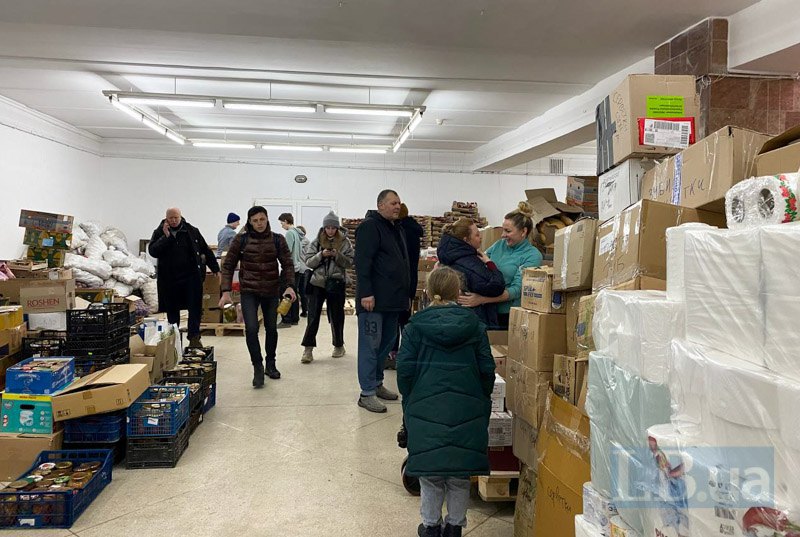
The aid collection center opened in the Palace of Arts on the first day of Russia’s attack on Ukrainian cities. The headquarters look more like a giant warehouse with clothes, food, blankets, pillows, hygiene products, medicine, etc. The exhibition halls, where the stands of publishing houses are placed every fall during BookForum, are lined to the ceiling with packages and boxes. People who came to the headquarters directly from the train station feed the children at the tables with food.
“Literally, three hours after the first missile strike, I appealed to the local authorities to open the Humanitarian headquarters here,” says the director of the Palace of Arts and now the curator of the headquarters Yuriy Vizniak. We cooperate with all the local officials, no matter what party they belong to, and we believe in our victory.
“Do you sleep at all?” I ask him.
“Well, we are trying to,” Yuriy smiles.
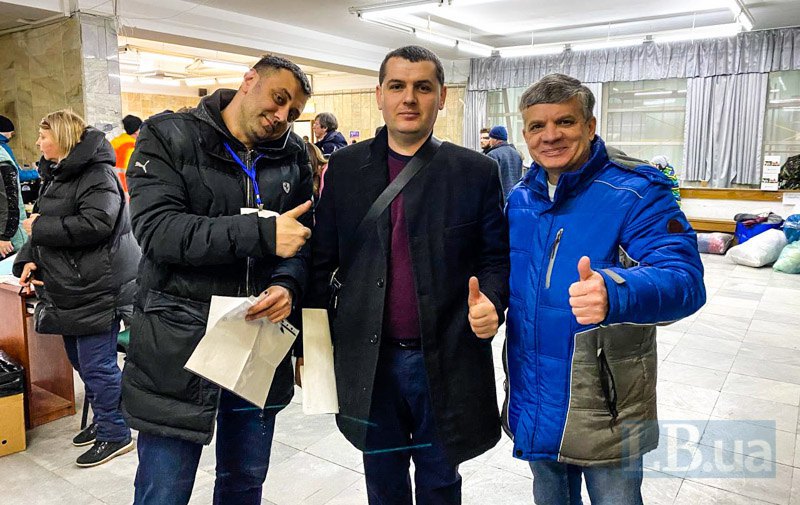
At the entrance to the headquarters, there is a continuous stream of people willing to help. Locals are bringing bags, shopping bags, sacks with anything. They are unloading trucks and buses. Everyone is thoroughly checked at the entrance by the volunteer guards. An explosive service is also involved in guarding the headquarters; they check some of the cargo with dogs for the explosives. After the packages are inspected, other volunteers are sorting, fixing, and counting the aid inside the headquarters.
Sofia, a short, thin girl wearing rubber gloves stands with her mother sorting a bunch of clothes. On the table with clothes hangs a sign "Children from 0 to 3".
“Look, I have clothes here. For small children” a man with a new package of clothes addresses her.
“Put it here; we will sort it out, thank you,” Sofia replies. This is her first time working in the headquarters. Her birthday was on 28 February - she is sixteen. Right now, Sofia was supposed to be in school, going to classes.
“My mother and I decided to help people fleeing from occupied territories. People need to know that they are not alone during this time of trouble. It is not the time to sit at home; we need to help,” says Sofia.
We talk a little more with Sofia about Kyiv, about the war, hug, and I move on. And she returns to sorting clothes as there is no shortage of work.
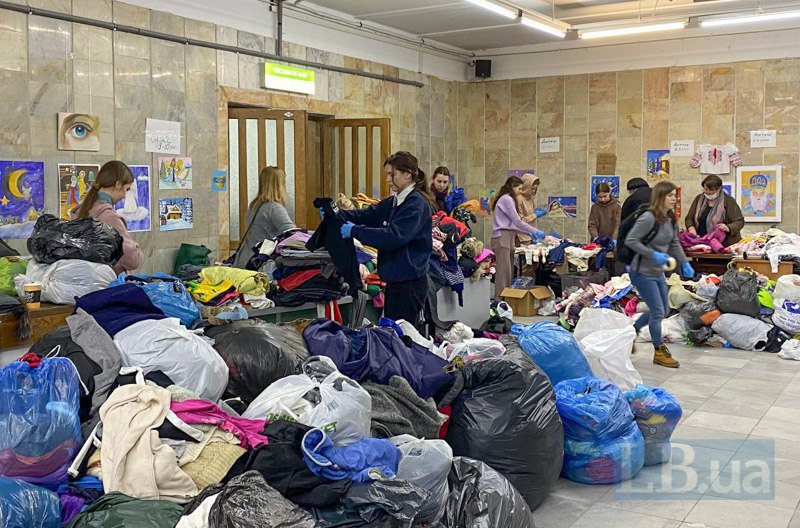
So far, volunteers have not counted exactly how much aid the headquarters has received and sent out. The two floors of the Palace of Arts exhibition halls are full to the brim with boxes. Transport with clothes, food, medicines, and hygiene products is regularly sent to the border with Poland, where there are a lot of refugees from Ukraine. Humanitarian aid is also sent to Kyiv, Sumy, and Kharkiv. In addition, the Humanitarian Headquarters assists individual military battalions. It does not collect money, but whatever people donate is transferred to the accounts of the Armed Forces of Ukraine.
“I am sure that our Armed Forces will succeed. I am optimistic and believe in our victory,” Yuriy Vizniak says and is immediately interrupted by someone; as new buses are arriving, there is a need to check or sign something…
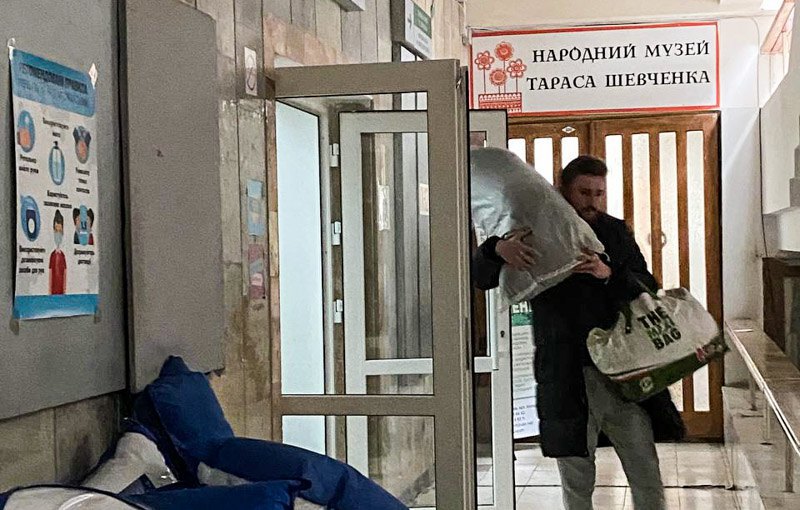
The biggest problem in Lviv right now is finding accommodation. Even though some Lviv locals are leaving to go to other countries, the number of apartments for rent is not growing. Some brokers are raising rent prices; some, on the contrary, try to find the best options for internally displaced people.
Currently, in Lviv, there are also shelters for those who can not find any other accommodation. The Palace of Arts, in particular, is keeping the third floor open and plans to put 300 beds there if needed. About 80% of the private apartments in Lviv are currently occupied. But there are shelters in various city institutions that quickly reshaped their work to help everyone, such as kindergartens, schools, theaters and offices.
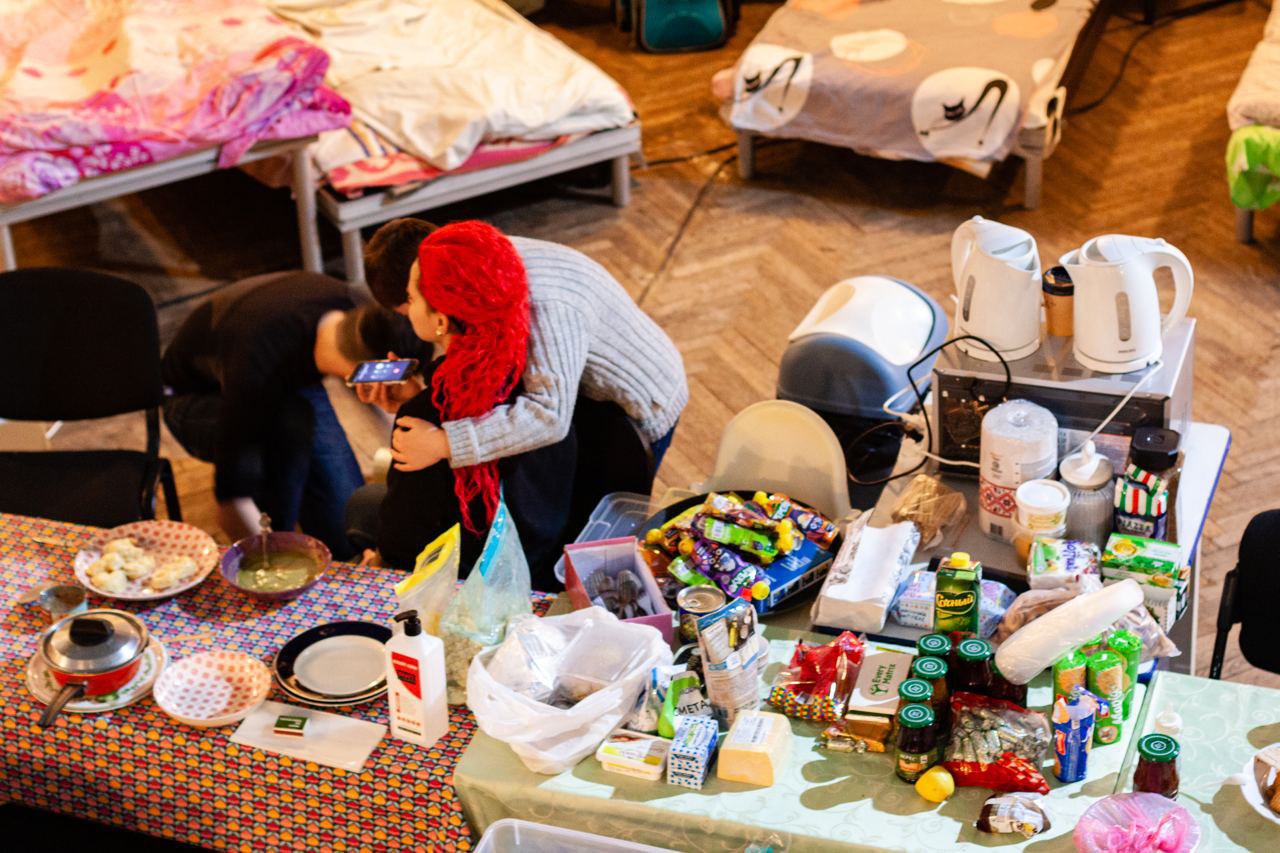
One of such shelters that holds thirty beds for displaced people opened in the Les Kurban Theater. Just last Wednesday, there was a play by an American director here, and now in the center of the hall, there is a table; around it are the beds where people are sitting or sleeping.
Nadia and her 11-year-old daughter, Elizaveta, arrived from Kyiv in Lviv on the morning of 1 March. Elizaveta is eating dumplings at the table; Nadia looks in front of her with glassy eyes. On 23 February, together with their family, they went to see a play based on Bulgakov's work in the Podil Theater. And on 25 February, the wreckage of a Russian missile flew into a nearby residential building on Koshitse street, where Nadiya lives.
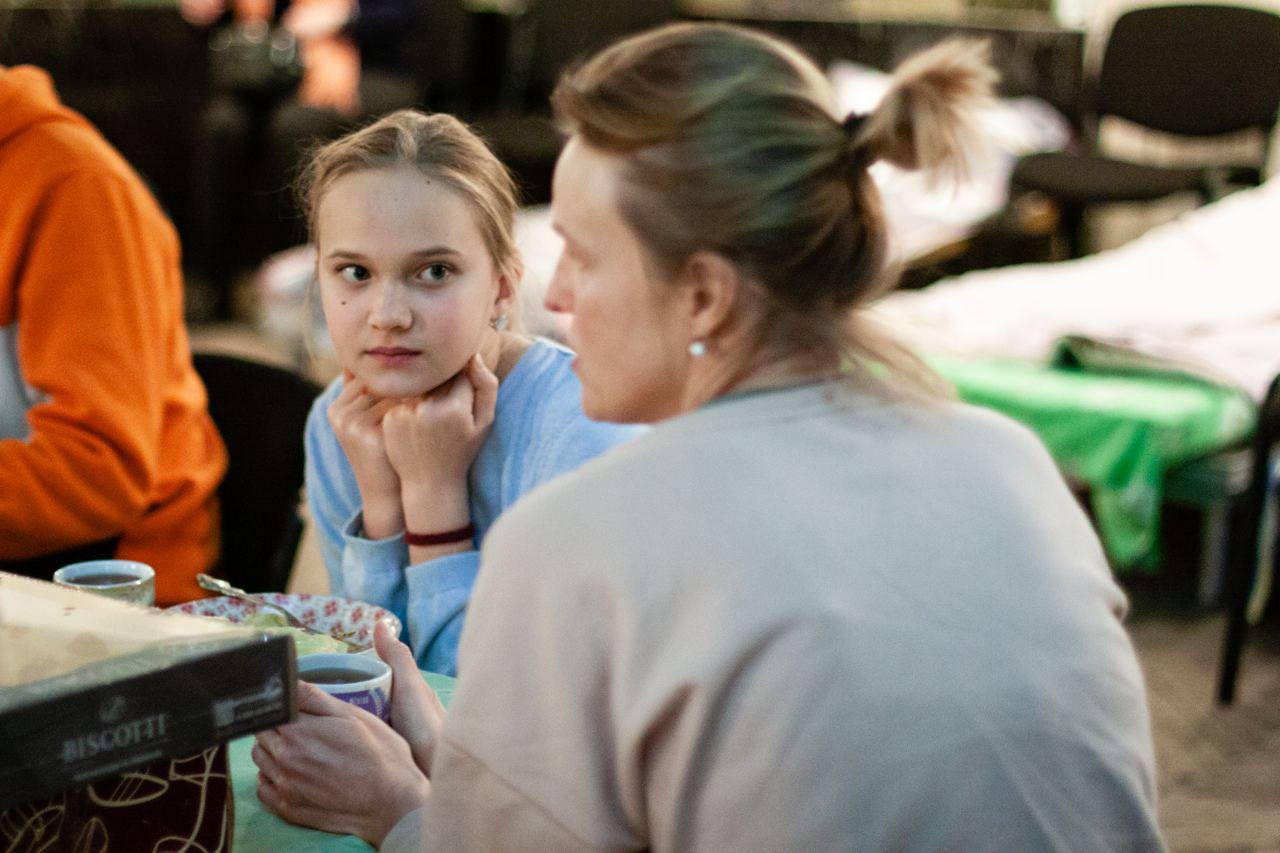
For several days Nadia was at home, and during the air raid alarms they went to the basement. At the weekend, during the curfew, they were in the shelter the whole time, together with the family. So when relatives offered to help Nadia flee, she accepted, so that at least her daughter wouldn't be spending her time in the basement any longer.
“We boarded the train, and when it departed, a missile flew somewhere in the direction in which the train was moving. People were literally saying goodbye to their lives” Nadia tells me. “The train seemed to travel twice as slow as in peacetime. People were taking their cats, dogs, turtles with them. I packed our bags very quickly at home, took only the essentials, and managed to throw in a flash drive with family photos. I have not yet recovered from the fact that I had to leave Kyiv.”
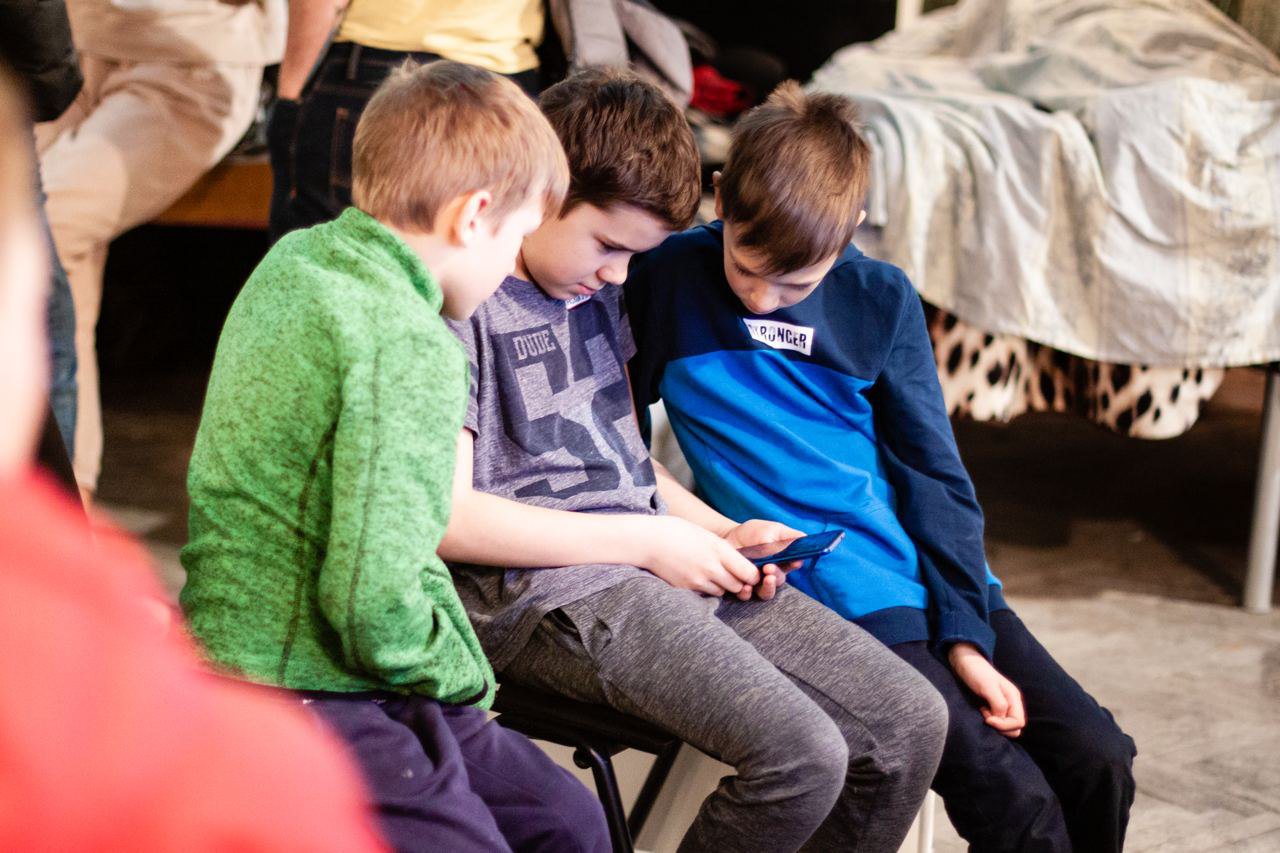
Nadia heard about the shelter in the Les Kurbas Theater by chance from other people that had arrived at the train station. To get in here, displaced people first have to register in the Lviv Regional State Administration coordination headquarters Arena Lviv. Random people are not allowed here for security reasons. Right now, a little less than half the beds are taken.
“There were rehearsals scheduled in our theater, but when the shelling started, we met with the team here, and there was no talk about plays,” says Olesia Pravdyvets, shelter curator and the administrator of the theater. “At first, we thought about collecting humanitarian aid but then decided to temporarily shelter the people coming to Lviv.”
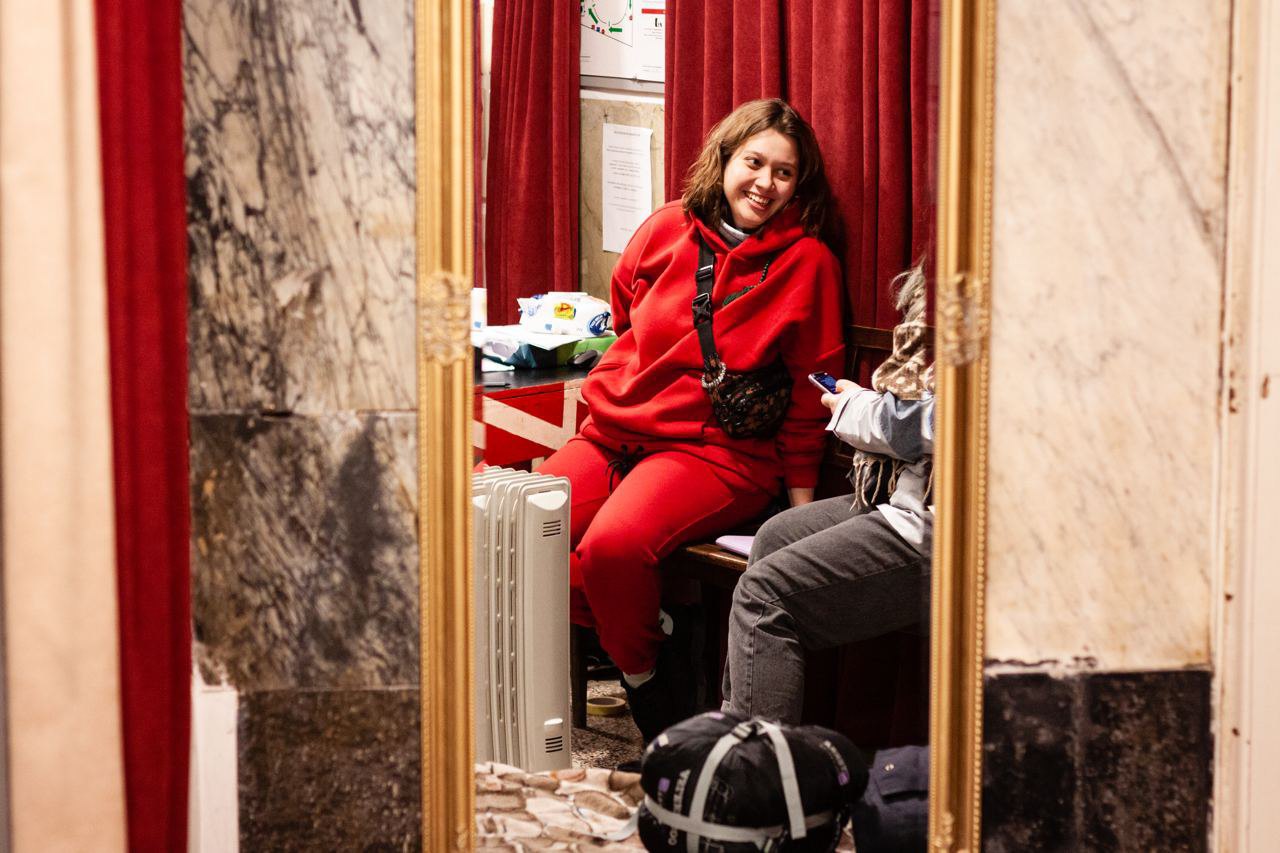
I am calling myself a taxi. Despite the fact that many drivers do not come out on routes right now, the taxi arrives pretty fast. For example, Uklon has now removed the commission, and all the profits go directly to the driver. Driver Orest takes me to Arena Lviv.
“Of course, I am working; people need to get to different places somehow,” he says. “I could have, for example, left for Warsaw and then to my relatives in Chicago on the first day, as I have a U.S. visa. But I do not want to go; this is my city and my country, she needs help.”
It is somewhat hard to get to Arena Lviv as it is on the city's outskirts. A lot of cars are leaving Lviv and getting stuck in the traffic. Besides, checkpoints have already been set up on the roads.
“No football matches happening here now,” says Orest as he looks at the banner written with the words “Coordination center” hanging on the stadium’s fence.
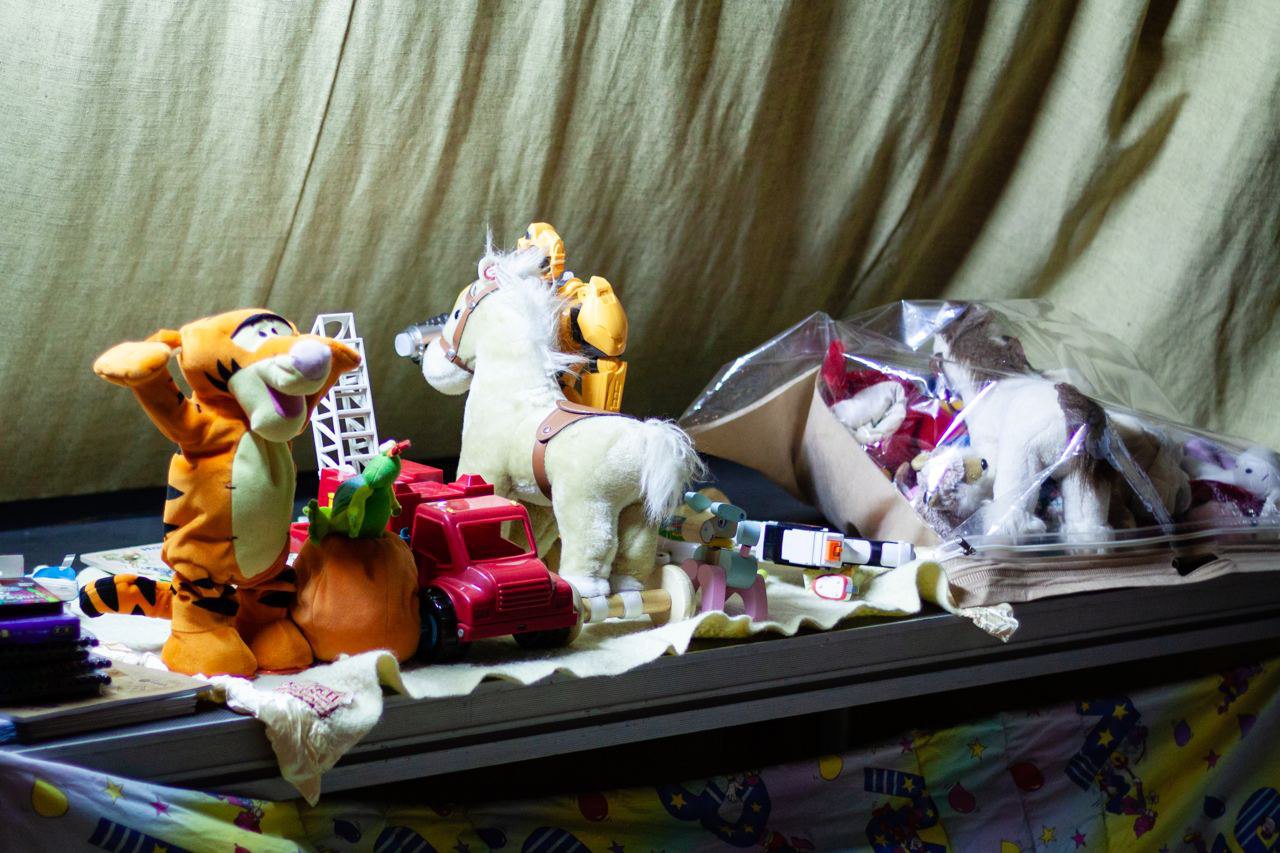
The coordination center at Arena Lviv, where displaced people are supposed to register, helps accommodate people who arrive at the railway station. It has been working since the first day of the war.
“There are not many people here now,” says the center’s volunteer, the deputy of Lviv Regional council Ivanna Herus. In peacetime, she deals with educational issues. Now a lot of her colleagues have become volunteers or joined territorial defense forces.
“We are not the place where people live. We are more of a transit hub where people can register, find shelter options, and other help. We honestly have not counted the requests, but altogether in three days (as of 27 February), we have processed more than two thousand. This night was hard. We had seven buses with people, and they needed to be settled somewhere quickly. I mean, we have a base with contacts, but we need to phone all of them. Many people here just warmed up, drank tea, and then returned to the railway station to get abroad.
A team of volunteers is constantly working at Arena Lviv. The center transfers all humanitarian donations to the Palace of Arts. Donations are accepted from private individuals. The Humanitarian Headquarters works directly with businesses.
Now the center works on organizing practical cooperation with the railway station so that people don’t sit in the cold for long and can immediately be sent to Arena Lviv.
“Do you ever get home?” I ask.
“Yes, I plan to go soon, five more calls, and then I will go home for a bit. To shower, to get some sleep. I can't sleep for a long time because the air raid alarms go off as soon as I fall asleep. I did not sleep this night, but there was no alarm. In general, I am glad that the people of Lviv have offered to help. They call me and ask if I need volunteers. I tell them I don't have enough work for all of them.
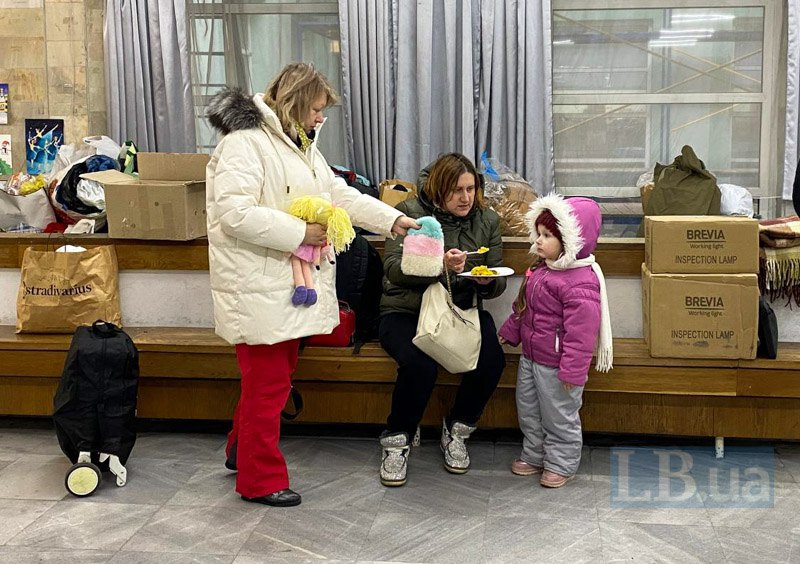
USEFUL CONTACTS FOR DISPLACED PERSONS IN LVIV
The Humanitarian Staff hotline is 0989416236
Numbers that can be contacted by both migrants and Lviv residents who want to help:
0962328193 - if you want to provide assistance to the center;
0684147963 - for those who need shelter, housing, or humanitarian aid;
0971821860 - for those who need shelter, housing, or humanitarian assistance;
0973474459 - for those who need shelter;
0636633371 - to solve transport issues.








